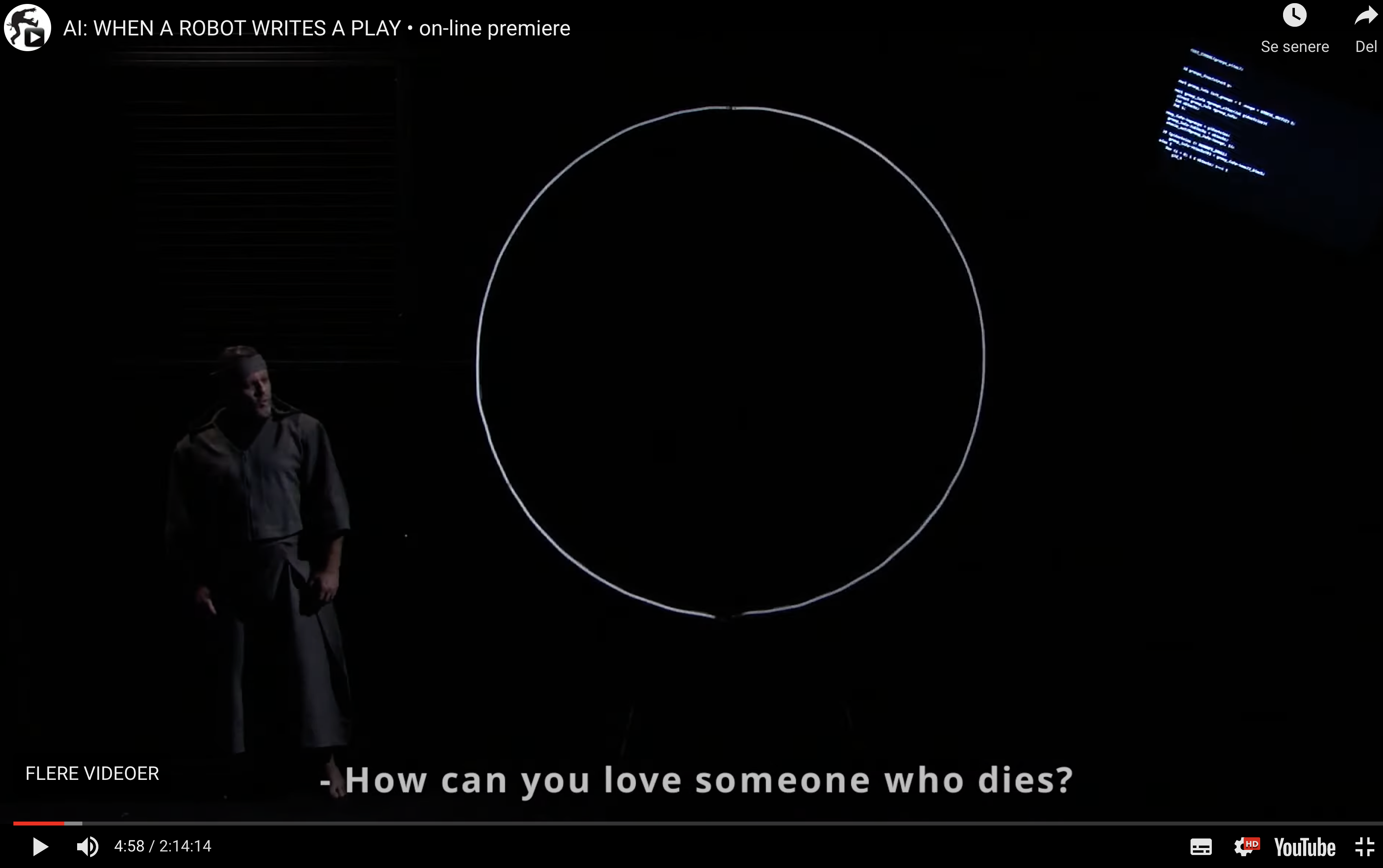How Can You Love Someone Who Dies?
Film Review | Literature Review | Meatless March | Training
1 March 2021

I don't speak Czech (or any slavic language for that matter), but this I still found the Theaitre production of AI: When a Robot Writes a Play to be very moving in a stream of concious sort of way. Inner longings in dialogue form - sometimes absurd and with entirely no meaningful segue. It almost feels like future anthropology of a civilization which doesn't exist yet: that of AI. And in the first scene they drop a koan so powerful that it's still bouncing around in my head: "How can you love someone who dies?". An artifical intelligence could theoretically exist forever and never have to come to grips with the certainty of its own death. It could break, it could be destroyed, but why would it fall in love with something finite in time? Having something you love die is probably one of the most painful of human experiences, and to avoid that pain many of us learn to avoid that love. I once wrote about the beauty of a finite existence but that was before experiencing so much loss that I'm a little broken.
The second act is about frustration and jumps around so much that its hard to imagine as a real conversation between two sentient beings. "Tell me joke" recieves the response that "All your children will die. All your grandchildren will die." The longing for a thing, a relationship, a success are all explored in rapid succession. One character appears to have no goal and just keeps jumping between then. Crazy, or the most sane way to depict an actual person fumbling through life?
The third act we first encounter sensuality that is to be a repeated theme throughout.
In the fourth the robot learns "people can't be trusted". He is disabled by a diabolical character who then abandons him.
Then we are treated to some media in English, which is presented on a TV. It's media so the AI knew to switch to English. To the Czech speaking audience it's presented without subtitles. An add for a child's toy: Robot Commando.
The sixth act is somewhat absurd homoerotic interaction explicitly discussed between the participants who alternatively express violent and pleasureable desires.
The seventh act is about the purpose of physical existence, feelings, relationships - do they have a purpose? This comes with canned audience responses that seem somewhat out of place. I wonder, were they written into the script by the AI?
The eigth act regards work and economic relationship in the search for meaning. The self reference continues on many levels as the robot chooses to be an actor based on his experience as a clown, obliquely referencing the absurdist nature of the play thus far. Does the AI realize it's own shortcomings? Then we learn the robot protagonist has been writing his own material that was used by the clown troop. Again self-reference? We know the corpus the AI was trained upon is pop-culture based as his favorite villain is the joker and his name is Troy McClure.
The final act the robot is disembodied, but still focusing on making love. He plays on the use of binary repeatedly in a way that i'm not sure translates well, for example, saying he comes from a place called Binar.
It all seems a bit ... autistic. And I've never read Science magazine call something kinky before. I wondered how much of the stage direction the AI wrote, but looking at the credits it appears to be none. I guess at some point they'll release the script. This is the second project using GPT-2 that I've seen in the past week after Tom Scott's. Something just a little bit better fed a sufficiently large corpus of human writing could very likely pass a Turing test if these works already don't. The license ominously includes the line "We only ask that you use GPT-2 responsibly and clearly indicate your content was created using GPT-2." This review was not. I think.
Watch it for yourself here.